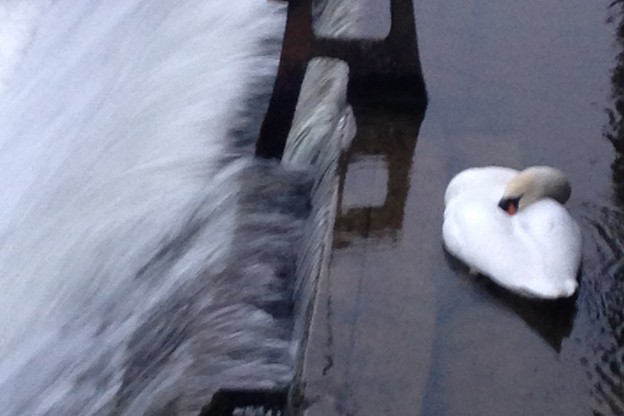And yet we must live in these times
Poetry against austerity

The latest metonym for austerity is, in Ireland, water. Since the fall, the Irish have prepared for the imposition of new charges on water usage (long included as part of general taxation). The projected annual costs range from 60 euros to 160 euros per family. Protests against the “semi-state company” Irish Water have drawn allies from Detroit; thousands marched last weekend against the arrest of five protestors in Dublin; two of the jailed protestors are on hunter strike. Galvanized by Syriza's victory in Greece, Ireland, which pays an extraordinary percentage of the total European banking debt, is one of the fronts on which the new international battle against neoliberalism is being waged.
I spoke to the Galway poet, activist, and teacher Sarah Clancy last week about Irish Water, among other things. Sarah will be appearing again in these pages. But for now I want to draw attention to a poem she read at a recent protest. Here's the video (linked in case the embedded one doesn't work).
This poem also appears in Sarah’s third collection The Truth and Other Stories (Salmon Press, 2014). The poem’s locations are the street and the welfare office: these allow Sarah to lay bare the appalling bromides of idle chatter and of state power. From listening to her perform the poem, there is a sense that Sarah's poetry is at once both completely continuous with everyday speech, and also capable of commenting on it, subverting it, from within. Even as the communicative aspects of poetry are heightened, so are the material qualities of sound brought to the fore, showing that any overstated distinctions between the two are never entirely believable. On a first listening, I was struck by the subtle tuning of repeated consonants (“-er,” especially) and near-rhymes (“violence”/“kindness”). On a second listening, I found that the unexpected proximity of certain words (“anger”/“angle”) uncovered chains of political associations.
Here is a poetry that insists “we must live in these times and no other.” But it also defends the collective power to pose a question, a question that opens a space for action and alternatives: what kind of times are these?
Speculations: new Irish poetry